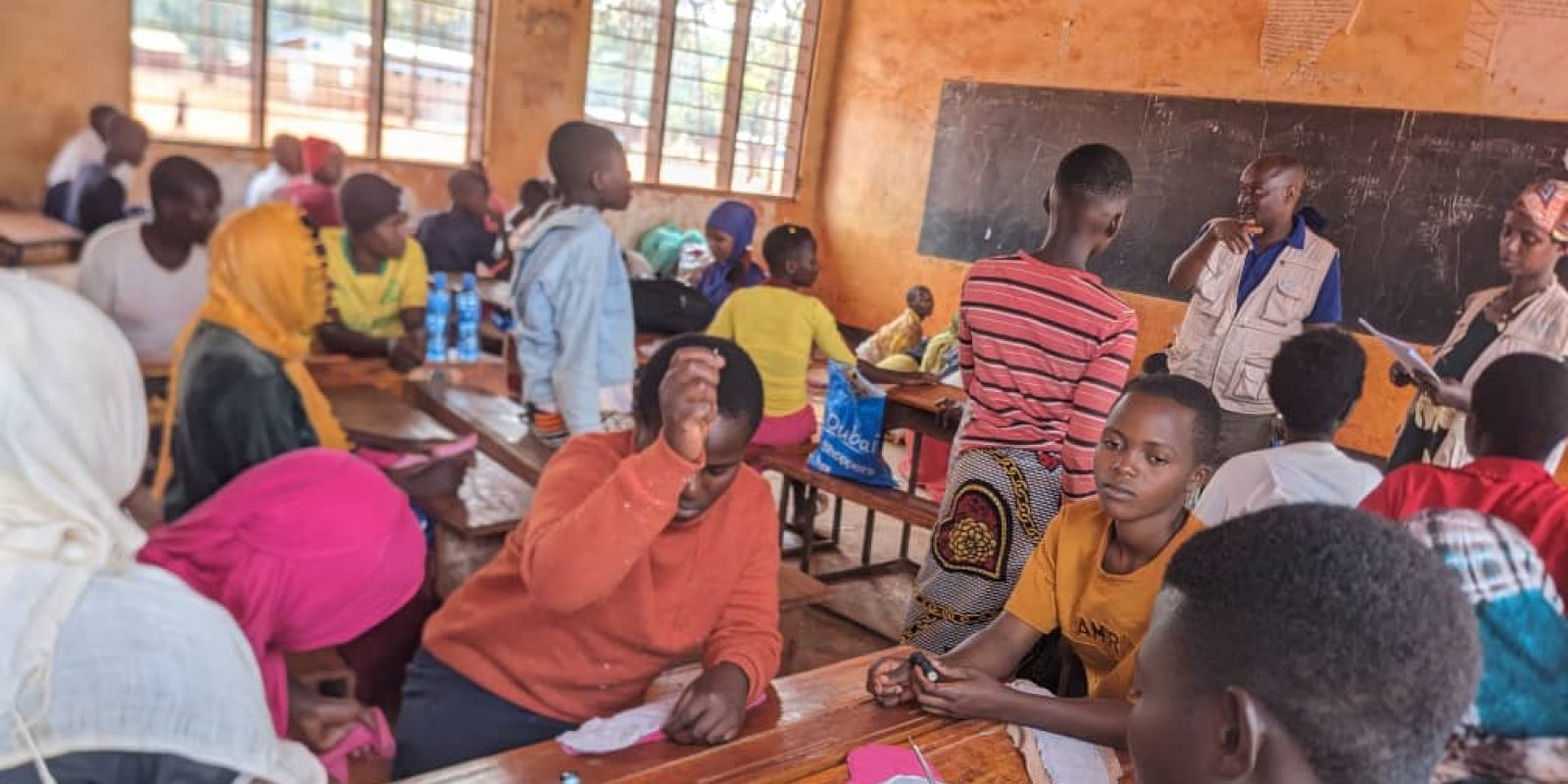From Violence to Hunger
30 May 2023|Paula Casado Aguirregabiria
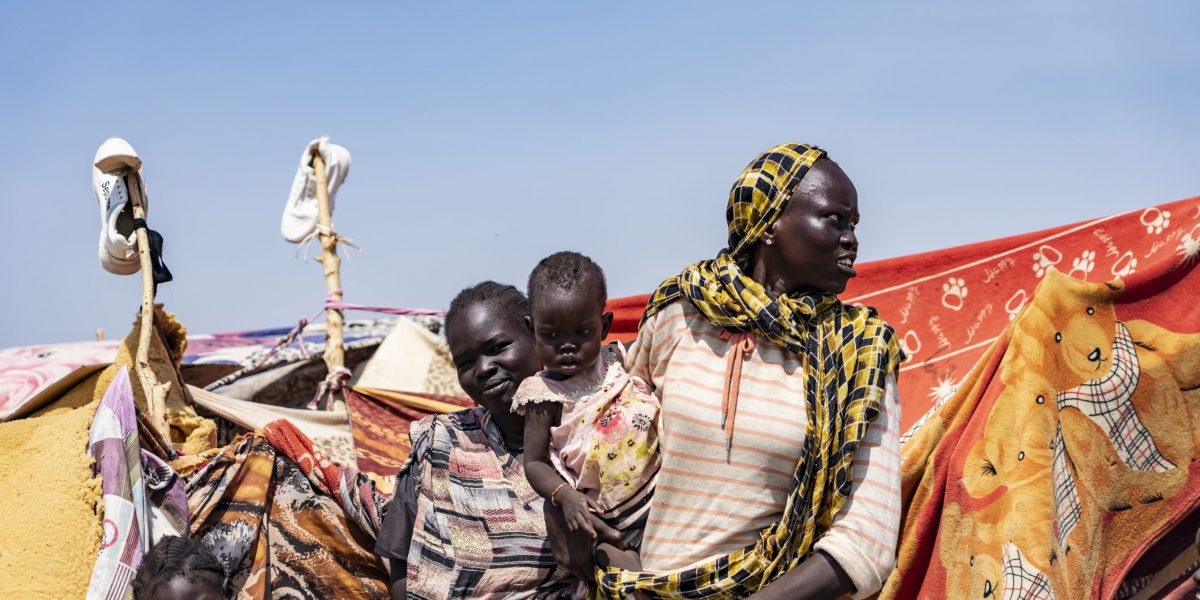
THE JOURNEY OF THOSE CORSSING TO SOUTH SUDAN
In Joda, one of the bordering towns between Sudan and South Sudan, displaced people arrive daily in their hundreds. An estimate of one thousand people cross the frontier every day looking for shelter and hoping to be back home as soon as possible (at least, those who have a home in South Sudan).
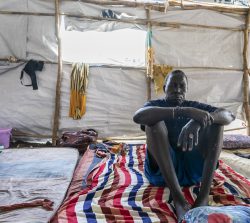
Out of those crossing, nearly all are South Sudanese returnees. Some had been living in Sudan for more than 30 years, others were refugees in Khartoum from the South Sudanese civil war, and others like Nura had found themselves in Sudan for a short period of time when the violence broke out.
“I never expected to end up in a place like this, in this situation.” – Nura Mohamed, 60
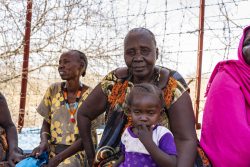 Nura had to go through a surgery in Khartoum in mid-April, the reason why she travelled to Sudan from Bor (South Sudan) and stayed with some relatives for a few days before the war started. On the morning of the 15th of April, the violence broke out, and she found herself blocked in the city unable to return home.
Nura had to go through a surgery in Khartoum in mid-April, the reason why she travelled to Sudan from Bor (South Sudan) and stayed with some relatives for a few days before the war started. On the morning of the 15th of April, the violence broke out, and she found herself blocked in the city unable to return home.
Now, as many others, she is in Renk, a small town next to Joda and Sudan’s border, where returnees are being sheltered until humanitarian agencies can provide them with the means to proceed to their final destinations.
But Renk is no promised land.
People arrive in higher numbers than organizations can manage to move onward. Shelter spaces are congested, and basic service provision is not enough to fulfil the needs of the growing and everyday more vulnerable population.
Renk’s Transit Centre is supposed to be, as the word indicates, just that: a transit space where returnees spend no more than three days and proceed to their next destination. Therefore, the provision of services is being limited to the more basic and necessary. But the reality is different. Families like Batika’s have stayed in the Transit Centre for more than four weeks already.
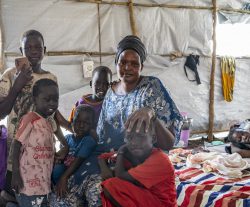 Batika had lived in Khartoum for more than ten years. She used to work as a housekeeper in the Sudanese capital when the war started. Batika explains to us how life became too difficult after the violence began: random bombing were falling at unexpected places around the city, there was no food nor water to provide for the children, and the insecurity was increasing every day. But what really triggered their departure from the city were not the bombs nor the bullets nor the hunger; but an attack that one of her close relatives suffered from a uniformed man in Khartoum on her way back from the market: she was sexually assaulted in the middle of the day. The fear of suffering such an attack was greater than anything else.
Batika had lived in Khartoum for more than ten years. She used to work as a housekeeper in the Sudanese capital when the war started. Batika explains to us how life became too difficult after the violence began: random bombing were falling at unexpected places around the city, there was no food nor water to provide for the children, and the insecurity was increasing every day. But what really triggered their departure from the city were not the bombs nor the bullets nor the hunger; but an attack that one of her close relatives suffered from a uniformed man in Khartoum on her way back from the market: she was sexually assaulted in the middle of the day. The fear of suffering such an attack was greater than anything else.
Sexual violence against women was starting to become an everyday threat, as in many wars where rape is used as a weapon to punish the enemy or the civilian population.
For this reason, Batika and her family decided to pack their things and run away to South Sudan in search of shelter and security.
Others like Kuaae and his family might not have lost their homes physically, but they have lost more than that. They have lost their dreams.
Kuaae used to work as a pre-primary teacher in Khartoum. South Sudanese in origin, he had lived for more than 20 years in Sudan.
He was at the school when the war started. He relayed how ataround 9am on the 15th of April the bombs started falling.
They decided to shelter the children in the school, waiting for the bombs to stop, but after some hours, when they saw the danger was not disappearing, they had to call the parents to come to the school and pick their children in the middle of the day.
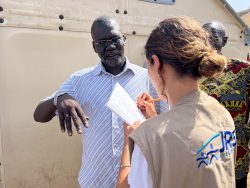
When all the students had gone, it was Kuaae’s time to go and look for his family. They locked themselves at home for some days waiting for the violence to stop.
“It was harsh… especially with the children. Seeing them crying every day… it made it very difficult for me,” he explains.
On the 24th of April, Kuaae and his family decided to take the children and run away from Sudan.
“We carried nothing with us! We had no way of carrying food nor any other item, since I was busy carrying the children.”
Kuaae is now acting as a community leader in Renk. He supports humanitarian actors to identify the needs of the community, to spread messages and information among the families, and much more. Being a teacher offers him a role of respect among the community. And that has been very helpful to us.
His only dream is for his children to be able to go back to school and for him to go back to teaching. He is passionate about his job, and he feels he owes the students a continuity in their education, since education “is the only weapon to fight violence and ignorance”.
Life in Renk is not easy. The capacity of humanitarian actors is lower than the increasing needs of the displaced population.
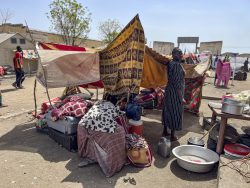
Those who crossed and had the means to cater for their own transport, have been able to move beyond Renk to their final destinations. However, for those who do not have the means, like Kuaae, Nura, or Willium, cannot afford to pay for their own transportation. Therefore, they are waiting for the humanitarian actors to support them in their travel. But logistics, weather, means and instability are delaying the process.
In the meantime, they stay in Renk, where the service provision is poor and incomplete. Food is insufficient, and lack of water is a source of conflict. This, together with overcrowding and lack of Non Food Items (NFI’s) such as soaps or mattresses, plus the approaching rainy season, is endangering the whole displaced population to face severe hygiene and health challenges. The word cholera is over-heard in every corner of the Transit Centre. People are afraid of the possible consequences of the rains to come, when added to the situation of despair is triggering tensions and conflicts among the displaced population itself.
JRS is accompanying these people is various ways. Not only by listening to them, but by referring them to partners, offering Psychological First Aid, safe spaces for children to draw and play, as well as basic physiotherapy services and NFI distribution to the most vulnerable cases.
People are afraid. Afraid of sickness, of hunger, of more violence to arrive… of what will be next.
That is why JRS are present in Renk, despite Renk not been a normal area of operation for JRS South Sudan: because we need to be where we are needed the most. Because we follow our mandate to accompany the most vulnerable . And who is more vulnerable now than these people running form violence and war, most of whom have lost everything they had.
Thanks to the support of our donors who are responding to the needs of the people arriving to Renk, enabling us to provide services and basic needs to the most vulnerable people. Thanks to them, we can be and will continue being in Renk where we are needed the most.
You can support our operations by making a small donation!

